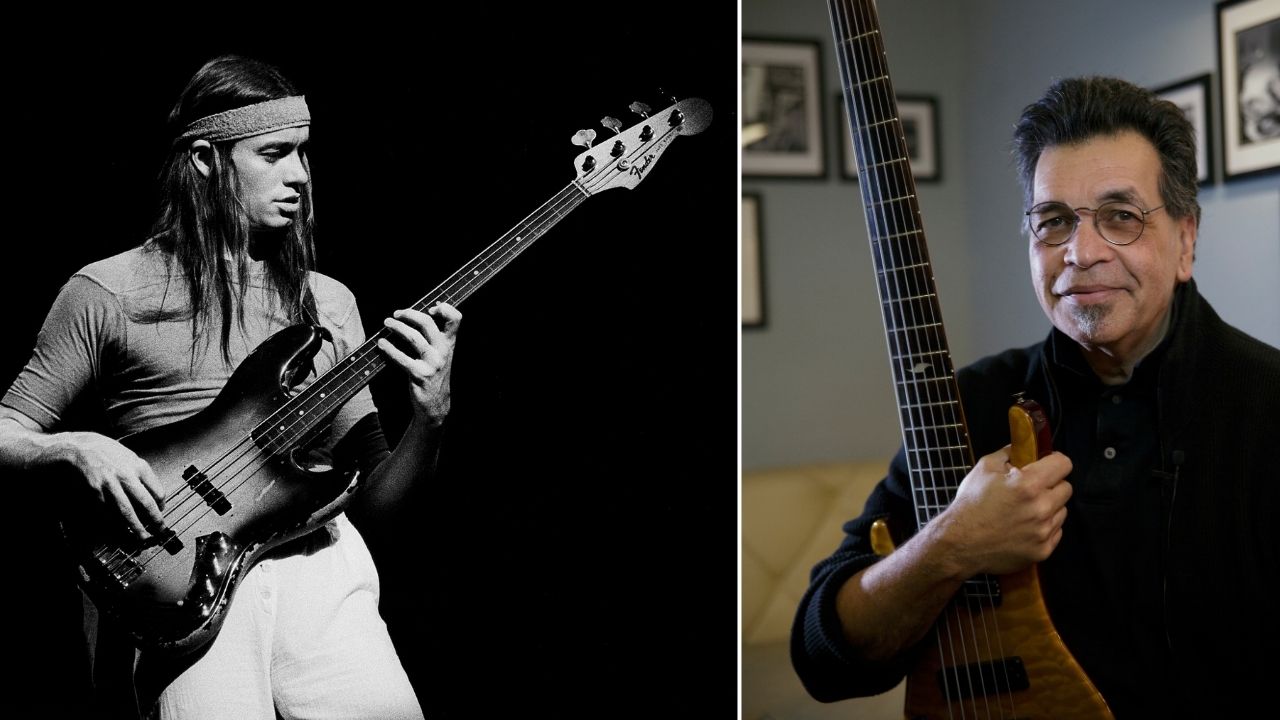“I played about eight different guitar tunings – I threw the idea of patterns and scales out the window”: Kim Thayil hits back at being called a “sloppy” guitarist
The grunge icon details how the pros and cons of alternate tunings defined Soundgarden’s career, and how his “spontaneous wildness” saw Chris Cornell reposition his amp

Kim Thayil has dismissed a review that called his guitar playing “sloppy” while detailing how his love for alternate tunings saw him disregard all he knew about shapes and scales.
In an extensive interview with Pete Thorn, Thayil – arguably the most experimental guitarist to come out of the Seattle scene in the ‘90s – wasn’t coy with his answers.
The review in question highlighted Thayil’s imperfect playing style – something man y would argue is where much of his personality comes from.
“I’ve recently read this online review, and it’s like, ‘I don’t know, I’ve seen Kim live, he is just kind of sloppy,’” Thayil begins [via Killer Guitar Rigs].
“I played about eight different guitar tunings. At some point, 30 years ago or more, the idea of patterns and scales, I just threw it out the window.”
“I now have to relearn the song on the neck visually, as well as aurally,” he adds. “Everything I’d learned when I was younger, that I taught myself about scales or patterns, those are no longer factors because we’re coming up with our own tunings, or making shit up, or adjusting things.”
1994’s seminal album, Superunknown, for instance, boasts the quirk of nearly every song being played in a different tuning. From the standard tuning of Fell on Black Days to the peculiar drop-DG of its title track, Thayil has never been averse to abusing the tuning pegs on his favored black Guild S-100. While that opens up new sonic possibilities, it also creates a raft of practical problems.
All the latest guitar news, interviews, lessons, reviews, deals and more, direct to your inbox!
Says Thayil: “One of the first things you do when you drop your guitar is find where the octave is and build from there. [Then] I look at the song and look at the neck. ‘There’s that chord, there’s this chord.’ I picture where the chords are, I picture where the notes are. I don’t know what the mode is. It’s by ear, it’s by eye, and you just kind of learn these patterns on the songs – that’s how I play.”
“Now, if you’re playing four or five songs in those same weird tunings, but the songs are in different keys,” he continues, “and you’ve gotta remember the different patterns… sometimes you miss them, especially after a few beers!”
He was also pressed on how he navigates soloing when playing in atypical tunings. In particular, Thorn name-checked Rusty Cage, which takes a standard tuning and drops the sixth string to B (BADGBe) and Pretty Noose, from 1996’s Down The Upside, which sees Thayil using a low-down open C tuning – which later became a favourite of Canadian prog metal extraordinaire Devin Townsend.
Says Thayil: “You start learning the patterns, you just look at the neck and, ‘I go here, and as I ascend, here’s the notes I can play.’ I can throw in these half steps now and then, and it kind of twists it into a little different mode here and there.”
Of Rusty Cage in particular, he adds: "Chris had written that in drop-D, but we'd read about other bands tuning down, so we dropped [the sixth string] down another three half-steps, which changes the position of the octave. The octave is where there'd normally be the five, so the octave was proximal; it was much easier to play the intro part where you're sliding up, hitting the octave and coming back down.”
Interviewer Pete Thorn had the privilege of playing Soundgarden classics as part of Chris Cornell’s solo band in the mid-to-late-noughties. While learning the songs in preparation, he noticed Thayil’s tendency to play high up the fretboard on the lower strings. This is particularly apparent on Badmotorfinger classic Slaves & Bulldozers, and Thorn queried the guitarist on why he played so many riffs that way.
“Because it's bendy, a little bit looser and it was a darker timbre with the thicker string,” he says. “So when you're bending up there, you're kind of bending it sharp and there's something a little bit sharp about that.”
The pair’s discussion follows on from Thayil’s chat with Guitar World earlier this year, which, naturally, includes all things tunings.
“I can’t say we invented or designed these tunings,” Thayil had said. “You’d hear stories about players like Keith Richards playing in open [tuning] and maybe only using five strings instead of six. I also remember reading about Kiss dropping their guitars half a step down and realizing a lot of rock players were doing that.”
“Heavy metal and drop D is a match made in heaven… it just works,” he went on to say. “It became really big for us – and then other Seattle bands like Nirvana and Alice in Chains.”
Thayil’s chat with Thorn also expanded on how Chris Cornell’s switch from drummer to vocalist, and then vocalist/guitarist, helped expand the band’s sound.
“As our songs advanced, we started using a lot more power chords and cowboy chords, which sounded a lot wider,” he explains. “The single-note, arpeggiated things didn't need two guitars, but Chris needed a guitar to accompany his vocals and fill space when I might do a meandering solo, which usually stopped when I got bored or Matt [Cameron, drummer] got frustrated!”
To aid in that, he explains how Cornell's amp would be positioned center stage, allowing Thayil and bassist Ben Shepherd’s “spontaneous wildness” on either flank.
“If we're playing drunken [sic], throwing our guitars around and playing in a drop tuning, you're more likely to bend a string out of tune. You've got this really loud guitar on one side of the stage, a really loud bass on the other and perhaps they aren't syncing up tune-wise.
“So it was advantageous for Chris to have his amp right behind his head, between the drums and himself, giving him a queue for pitching. I think that was a primary advantage to orientate between the screams, feedback and spontaneous wildness of either wing to find where his voice fits."
To me, a guitar solo was improvisation. This is either where you’re being expressive – either expressive emotively or perhaps you’re being expressive aesthetically
He punctuated that point with Thorn, saying: “To me, a guitar solo was improvisation. This is either where you’re being expressive – either expressive emotively or perhaps you’re being expressive aesthetically. So if you’re not addressing the emotions, you’re addressing the ideas or the feeling of a song. And in that case, it’s going to be different from day to day.”
Thayil wanted wildness in his playing. In his Guitar World interview, he underlined how he wasn’t always looking for perfection in his playing, saying: “I’d like to remind all the perfectionist guitar nerds to listen to Jimmy Page’s solo on In the Evening. It sounds like the guitar is falling down the stairs… It’s brilliant. I remember people writing about it in the late ’70s asking, ‘Did he mean to fuck up there?’ And I’d be thinking, ‘It’s just cool!’
“The same goes for Jimi Hendrix with all that feedback. He was living it, thinking it and feeling it. Feedback was all over the place. It was part of the passion and intensity… and a lot of that fed into what I was trying to do!”
Today, Thayil plays in 3rd Secret, alongside fellow grunge alumni Krist Novoselic, Soundgarden/Pearl Jam drummer Matt Cameron and vocalists Jillian Raye and Jennifer Johnson.
In September, he finally released his signature S-100 with Guild Guitars – after three failed attempts and three decades of waiting.
A freelance writer with a penchant for music that gets weird, Phil is a regular contributor to Prog, Guitar World, and Total Guitar magazines and is especially keen on shining a light on unknown artists. Outside of the journalism realm, you can find him writing angular riffs in progressive metal band, Prognosis, in which he slings an 8-string Strandberg Boden Original, churning that low string through a variety of tunings. He's also a published author and is currently penning his debut novel which chucks fantasy, mythology and humanity into a great big melting pot.

